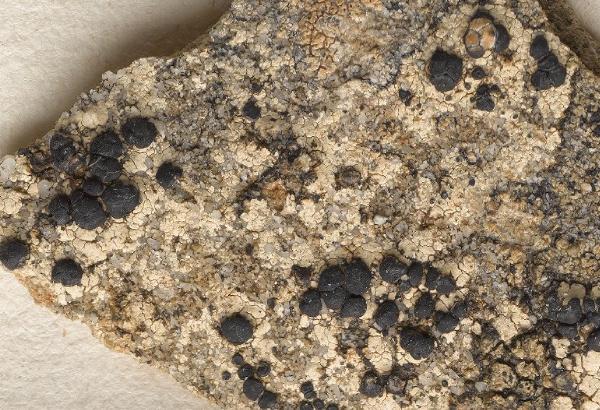Lecanora marginata (Schaer.) Hertel & Rambold
Bot. Jahrb., 107: 494, 1985. Basionym: Lecidea marginata Schaer. - Naturwiss. Anz., 2: 10, 1818.
Synonyms: Biatora elata (Schaer.) Hepp; Lecanora atrosulphurea Ach. var. eliminata Arnold; Lecanora eliminata (Arnold) Nyl.; Lecidea amylacea Ach.; Lecidea elata Schaer.; Lecidea elata var. formata Maheu & A. Gillet; Lecidea elata var. marginata (Schaer.) A. Massal.; Lecidea elata var. subfarinosa H. Magn.; Lecidea eliminata (Arnold) Arnold; Lecidea marginata subsp. elata (Schaer.) Clauzade & Cl. Roux; Lecidea marginata var. elata (Schaer.) Anzi; Lecidea marginata var. subfarinosa (H. Magn.) J. Novak & Tobol.; Lecidea mollissima Lynge; Lecidea sulphurella Th. Fr.; Lecidella elata (Schaer.) Körb.; Lecidella marginata (Schaer.) Körb.
Distribution: N - Frl (Tretiach & Hafellner 2000), Ven (Ravera & al. 2020b), TAA (Caniglia & al. 2002, Nascimbene & al. 2022), Lomb (Watson 2014), Piem (Isocrono & al. 2004), VA (Piervittori & Isocrono 1999), Emil (Fariselli & al. 2020). C - Tosc, Sar.
Description: Thallus crustose, continuous or rimose-areolate, yellowish to yellowish white, somehow shiny, rarely delimited by a dark prothallus. Medulla white, I-. Apothecia lecideine (rarely appearing lecanorine when very young), at first immersed, then subsessile, rounded to slightly irregular in outline, 0.4-1.5(-2.5) mm across, with a shining black, flat to convex disc, and a black, soon excluded, sometimes slightly white-pruinose proper margin; thalline margin present only in very young apothecia and very soon excluded. Proper exciple dark blue-green in outer part, colourless within, the pigmented parts, N+ red; epithecium green to dark blue-green or greenish black, N+ red; hymenium colourless, 50-75 µm high; paraphyses simple or sparingly branched and anastomosing, 1.5-2.5 µm thick at mid-level, the apical cells swollen, 3.5-5(-6) µm wide; hypothecium colourless, 80-200 µm high. Asci 8-spored, clavate, very thin-walled, with a K/I+ blue, tall tholus penetrated by a faintly amyloid apical cushion, the wall K/I-, surrounded by a blue outer layer, Lecanora-type. Ascospores 1-celled, hyaline, ellipsoid, (8-)10-13(-14) x (4.5-)6-7.5 µm. Pycnidia black, immersed. Conidia thread-like, curved, 11-20(-25) x 0.5-1 µm. Photobiont chlorococcoid. Spot tests: cortex K- or K+ yellow, C-, KC- or KC+ yellow, P- or P+ pale yellow. Chemistry: usnic acid and atranorin, both in variable concentrations.Note: a circumpolar, arctic-alpine lichen found on limestone, dolomite, and on more or less calciferous siliceous rocks near or above treeline, up to the nival belt, most frequent in the Alps. The record from Campania by Ricciardi & al. (2000) at a low elevation, is not accepted here.
Growth form: Crustose
Substrata: rocks
Photobiont: green algae other than Trentepohlia
Reproductive strategy: mainly sexual
Commonnes-rarity: (info)
Alpine belt: rather common
Subalpine belt: rather rare
Oromediterranean belt: extremely rare
Montane belt: absent
Submediterranean belt: absent
Padanian area: absent
Humid submediterranean belt: absent
Humid mediterranean belt: absent
Dry mediterranean belt: absent

Predictive model
Herbarium samples


P.L. Nimis; Owner: Department of Life Sciences, University of Trieste
Herbarium: TSB (13753)
2002/12/12
young apothecia


P.L. Nimis; Owner: Department of Life Sciences, University of Trieste
Herbarium: TSB (13753)
2001/11/26


P.L. Nimis; Owner: Department of Life Sciences, University of Trieste
Herbarium: TSB (13753)
2002/12/12

Courtesy Danièle et Olivier Gonnet - Source: https://www.afl-lichenologie.fr/Photos_AFL/Photos_AFL_L/Texte_L_3/Lecanora_marginata.htm
France, Col de la Cayolle, alt. 2350 m - Alpes-de-Haute-Provence
23/7/2014

Courtesy Danièle et Olivier Gonnet - Source: https://www.afl-lichenologie.fr/Photos_AFL/Photos_AFL_L/Texte_L_3/Lecanora_marginata.htm
France, Col de la Cayolle, alt. 2350 m - Alpes-de-Haute-Provence
23/7/2014

Courtesy Danièle et Olivier Gonnet - Source: https://www.afl-lichenologie.fr/Photos_AFL/Photos_AFL_L/Texte_L_3/Lecanora_marginata.htm
France, Col de la Cayolle, alt. 2350 m - Alpes-de-Haute-Provence
23/7/2014
Growth form: Crustose
Substrata: rocks
Photobiont: green algae other than Trentepohlia
Reproductive strategy: mainly sexual
Commonnes-rarity: (info)
Alpine belt: rather common
Subalpine belt: rather rare
Oromediterranean belt: extremely rare
Montane belt: absent
Submediterranean belt: absent
Padanian area: absent
Humid submediterranean belt: absent
Humid mediterranean belt: absent
Dry mediterranean belt: absent

Predictive model
| Herbarium samples |


P.L. Nimis; Owner: Department of Life Sciences, University of Trieste
Herbarium: TSB (13753)
2002/12/12
young apothecia


P.L. Nimis; Owner: Department of Life Sciences, University of Trieste
Herbarium: TSB (13753)
2001/11/26


P.L. Nimis; Owner: Department of Life Sciences, University of Trieste
Herbarium: TSB (13753)
2002/12/12

Courtesy Danièle et Olivier Gonnet - Source: https://www.afl-lichenologie.fr/Photos_AFL/Photos_AFL_L/Texte_L_3/Lecanora_marginata.htm
France, Col de la Cayolle, alt. 2350 m - Alpes-de-Haute-Provence
23/7/2014

Courtesy Danièle et Olivier Gonnet - Source: https://www.afl-lichenologie.fr/Photos_AFL/Photos_AFL_L/Texte_L_3/Lecanora_marginata.htm
France, Col de la Cayolle, alt. 2350 m - Alpes-de-Haute-Provence
23/7/2014

 INDEX FUNGORUM
INDEX FUNGORUM
 GBIF
GBIF
 DOLICHENS
DOLICHENS






